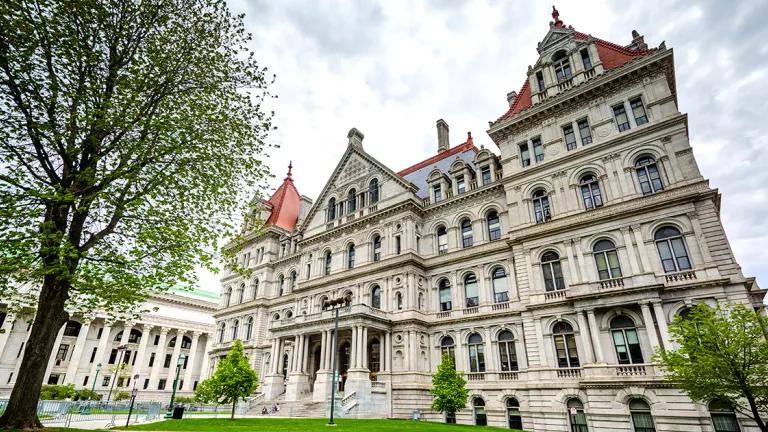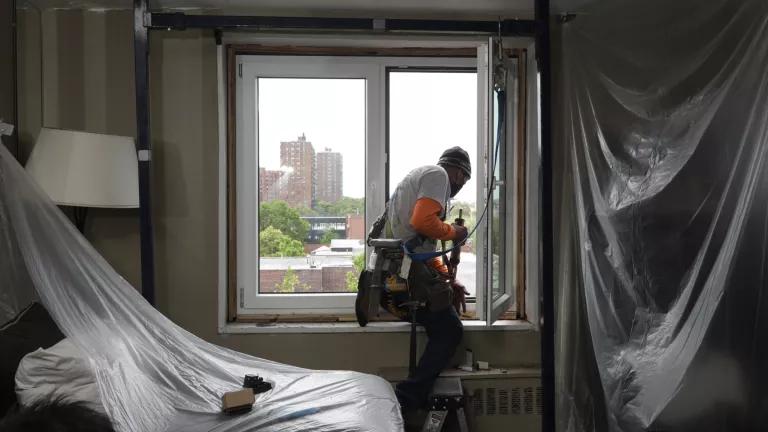Pittsburgh City Buildings Ready to Go Net Zero
Pittsburgh’s Mayor William Peduto signed an ordinance for net-zero government buildings, taking action to save money on operating costs and an important step toward the city’s climate goals. This follows the Pittsburgh City Council’s unanimous vote on October 15, 2019 to pass an ordinance requiring all new or renovated City government buildings to be net-zero energy (NZE) ready. The net-zero energy ready requirement will be met by leveraging energy efficiency to achieve low levels of energy consumption. The buildings will then be ready to achieve net-zero energy through the future addition of enough onsite or local renewable energy to offset its consumption over the course of a year.
What Is Net-Zero Energy?
Net-zero energy buildings produce as much or more energy than they use. First, net-zero buildings achieve a standard of high energy efficiency by upgrading insulation, air sealing, windows, lighting and other building components. Second, net-zero buildings produce on-site clean energy sufficient to meet the modest electricity demand. Pittsburgh’s ordinance is Net-Zero Energy Ready, which includes prioritizing energy efficiency then installing infrastructure to enable connecting to an on-site or local renewable energy source. The Pittsburgh Department of Public Works will write the net-zero energy ready standards to set clear building efficiency targets, and to determine whether these buildings will include energy sources beyond grid electricity, such as on-site combustion of gas for space and water heating, which is often not included in definitions for net-zero energy. Net-zero energy buildings are increasingly seen as a smart, cost effective approach that combines efficiency with infrastructure readiness to avoid high cost retrofits and future-proof buildings.
Pittsburgh Focuses on Energy
Pittsburgh is committed to deliver on the City’s public dedication to upholding the Paris Climate Accord. As part of this, the city specifically set a goal to reduce the City’s carbon emissions by 50% by 2030. Previously, the City required a LEED Silver standard for municipal buildings—the change to Net Zero Ready will create a more direct focus on energy efficiency and carbon reduction, while also avoiding the administrative and cost burdens of LEED certification. The net-zero energy ordinance is the most recent of many efforts by Pittsburgh to reduce energy usage and set an example for good building energy management. The Planning Department’s Sustainability and Resilience Division last month released the first annual energy benchmarking report for municipal buildings owned and operated by the City. This report lays out opportunities to reduce building operating costs by making strategic investments in energy efficiency in city buildings.
“Pittsburgh is taking real steps to meet its energy goals, and moving to net-zero construction will be one of the most meaningful and impactful actions we’ve ever taken. It is not only the right move for the planet, but for the city’s budget too,” Mayor Peduto said.
Saving Money and Creating New Jobs
Pittsburgh joins a small but growing group of cities in the United States with net-zero energy ordinances. Leading by example, the city is showing commitment to building and supporting sustainable development. City-wide, since energy use by buildings makes up 80% of the carbon emissions for Pittsburgh, zero carbon building energy practices are essential to tackle emissions from this sector. The City’s action will yield further benefits, such as cost savings to the city taxpayers through reduced operating costs, providing healthy and productive work environments for all residents and employees, contributing to the city's goals of protecting, conserving, and enhancing the region's environmental resources—and creating jobs. Energy efficiency leads in Pennsylvania’s Clean Energy job sector, providing over 17,000 jobs in Pittsburgh alone and 90,000 statewide.This ordinance will boost those numbers.
“Since 2014, Pennsylvania has increased its workforce in clean technologies like renewables, energy efficiency, clean vehicles, storage, and grid modernization by nearly 60 percent—employing now twice as many workers as the state’s entire fossil fuel industry.”
—Clean Jobs Pennsylvania Report, 2018
This passage marks an important victory for the City’s commitments under the American Cities Climate Challenge. The City worked closely with Rocky Mountain Institute, an American Cities Climate Challenge partner, to develop an ordinance and refine customized language for city needs. With a net-zero energy target, PIttsburgh is already planning for high energy efficiency in upcoming renovation and construction projects, taking an essential and necessary step toward achieving the Paris Climate Agreement goals.




